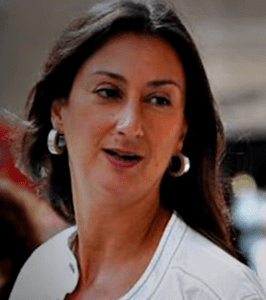War on Women: Tragic Incidents Worldwide

Shocking statistics on incidents of violence against women were presented at a seminar held on the occasion of the International Day for the Elimination of Violence Against Women. The event was organized by the Equality Committee of the Hellenic Parliament, the Educational Foundation of the Union of Journalists, and the Women’s Political Association.
By Angeliki Gypaki
According to these reports, the UN certifies 137 murders of women every day within their family or social circles worldwide, with Asia sadly taking the lead, closely followed by Africa. However, even “civilized” Europe does not claim any laurels, as 50 women are murdered each week by a partner or ex-partner alone in the European Union! And we are not even discussing the numerous other attacks motivated by honor and more, severe injuries, rapes, psychological and verbal abuse, professional downgrading, child custody deprivation, and many other demeaning behaviors that make our civilization appear unable to take even a single step forward on this crucial issue.

As former Member of the European Parliament, Ms. Anna Karamanu, describes in her speech (which is published in full below): “In our time, this constitutes an open war against women! Violence, in all its forms and shades, against women, and the hostility towards gender equality, I believe, is the main cause of the indirect or direct exclusion of the female gender from the centers of political and economic power.”
And she proposes that a woman should become the President of the Republic soon in Greece.
The goal of violence
According to Ms. Karamanou, the goal of the aggression that women experience is: “To keep us in the role that was historically imposed on us by patriarchal regimes, so that the archetypal hegemonic masculinity and their divinely revealed supremacy are not threatened.”
Femicide: The Truth Behind the Numbers
“The statistics on the war against women are very revealing. The UN confirms that every day, 137 women are murdered within their family or social circles. The UN itself refers to this as a global scourge. We have reached the point where we are talking about femicide, in the same terms as ‘genocide’! Data for 2017 reports that 87,000 women were murdered by their closest ones, most of them by their partner.”
According to the statement from the Greek Feminist Network for International Women’s Day on March 8th, it is estimated that these statistics represent only a small part of the reality. These are not just hate crimes with sexist or racist motives, but crimes against humanity, and as such, we demand they be recognized. According to UN data from government sources, 8 out of 10 victims of homicide worldwide are women.
On October 1st, 2018 alone, correspondents from the global BBC network reported the murder of 47 women in 21 different countries. How, then, can we not speak of a war against women?
The highest number of women murdered by their partner or a relative in 2017 was recorded in Asia, with a total of 20,000 femicides. This is followed by Africa with 19,000, North America, Central and Latin America (8,000), Europe (3,000), and Oceania (300). Of the 5,000 “honor crimes” that occur annually, about 1,000 are in India. Violence against women is as serious as cancer as a cause of death and disability for women of reproductive age, and it is far greater than road traffic accidents.

In conflict zones, the rape of women is considered a “weapon of war” that terrorizes the population and destroys the social fabric. In 2014, according to the United Nations, the Islamic State carried out a campaign with genocidal dimensions in northern Iraq against the Yazidis, capturing many women from this minority as sex slaves. More than 6,400 Yazidis were forced into slavery.
Around the world, nearly 750 million women and girls who are alive today were married before the age of 18, while 200 million women and girls have undergone genital mutilation. 71% of all human trafficking victims globally are women and girls, and 3 out of 4 of these women and girls suffer from sexual exploitation.
MeToo movement
The MeToo movement, which fights against the sexual abuse of women, marked its second anniversary this year and has gained global scale, giving voice to many women who have been victims of sexual abuse. It contributed to the liberation of speech and led to an increase in the recorded incidents of sexual violence. On October 5, 2017, *The New York Times* revealed a series of accusations of sexual harassment and violence that led to the downfall of former Hollywood mogul Harvey Weinstein.
On the occasion of the International Day for the Elimination of Violence Against Women, I read the following on Protagon.gr:
At the Milanese hospital San Carlo, and initiated by the surgeon Maria Grazia Vandandori, 59, an exhibition is being held showcasing X-rays of women who arrived at the hospital with serious injuries. The X-rays, says the doctor to the reporter from *La Repubblica*, reveal the domestic violence the women endure. “This is the daily horror we witness in emergency cases. Often, the injured women do not have the strength to say what has happened to them, but their bodies and their wounds speak for themselves.” The doctor describes the usual injuries: “Broken bones in the nose, hands, and legs, knife wounds, burns, bruises, and other signs of strangulation.” But also the unusual: “We even had one woman come in with a knife stuck in her back.”

And now, another shocking statistic: 50 women are murdered every week by a partner or ex-partner in the European Union. “It is truly horrifying, especially when you consider that we have been working on this issue for many years. But the reality remains, the numbers continue to rise, and this is something we know because many cases go unreported,” said the responsible Commissioner, Helena Dalli, who was the first Minister for Equality in her home country, Malta, and is now the first Equality Commissioner in the European Commission. The Commissioner wants all EU member states to ratify the Istanbul Convention, the international commitment to addressing violence against women. There are still 6 countries that have not ratified it (Bulgaria, Czech Republic, Hungary, Latvia, Lithuania, Slovakia).
In our country, after the ratification of the Istanbul Convention, there is a relatively strong legal framework for combating violence. However, as is well known, laws are easily passed but difficult to implement. Let us remember the 20 women murdered in the last two years.
As announced by the General Secretariat for Gender Equality, the number of cases reported to the Counseling Centers of the General Secretariat for Family Policy and Gender Equality amounts to 18,583 from April 2012 until November 21, 2019. Of these, 16,603 are cases of violence, while 1,980 involve cases of multiple discrimination.
Women in the public sphere
With such terrifying statistics, how can women dare to claim their rightful place in the public sphere? Fear guards the lonely…

Just a few days ago, 37-year-old Chilean photojournalist Albertina Martínez Burgos was found brutally murdered in her apartment in Santiago. She had been covering the protests against Piñera’s regime in Chile. She is one of the many women journalists and politicians who have been murdered.

In October of 2017 in Malta she was found dead because of a bomb which was placed under her car close to her house Daphne Caruana Galizia the journalist that lead the investigations of the PanamaPapers for the corruption, in which the prime minister’s wife is also involved Joseph MuscatIn a post on social media, the journalist’s son writes, among other things: “Sorry for being blunt, but this feels like war, and you need to know it. This was not a typical murder, and it wasn’t tragic. Tragic is when someone is killed by being hit by a bus. When there’s blood and fire all around you, this is war.” These days, there is a domino effect of developments in Malta’s political scene, following mass protests against the government and the prime minister, demanding the investigation of the murder, two years later.

It is also worth pausing for a moment to remember the remarkable politician, Anna Lindh, the Swedish Minister of Foreign Affairs and one of the most important members of the Social Democratic Party, who was fatally stabbed by Mikhail Mihajlovic on September 10, 2003, in a store in Stockholm. At the time of the attack, she was actively involved in the campaign for Sweden’s entry into the Eurozone, as well as fighting for women’s rights, environmental issues, and international peace. Anna Lindh was considered one of the main candidates to succeed Göran Persson as the leader of the Swedish Social Democratic Party. In this context, you may note that Prime Minister Olof Palme of Sweden was also assassinated in February 1986, while returning from the cinema with his wife. However, the murder of Anna Lindh also contains the added element of misogyny and the refusal to allow a woman to take a position of power. After all, as is well known, women are expected to submit to men, and “the woman should fear the man,” as the scriptures still dictate…
Exactly this is what patriarchy aims for: to make us afraid! To terrorize us! To control us through fear and violence. To prevent us from having an opinion! To reduce us to mere objects. To prevent us from questioning the established patriarchal order. This is where far-right parties excel. Remember the Golden Dawn and the image of the tough, violent macho man it promoted. In Spain, the far-right party VOX, which received 15% in the latest elections, claims that violence against women is a political invention.
I have personal experience of being terrorized, subjected to attempts at intimidation, and ultimately politically neutralized due to the open stance I took, as well as the resolutions of the European Parliament I initiated, regarding the lifting of the prohibition of women from Mount Athos. On the Athos Peninsula, women’s access is legally prohibited under penalty of imprisonment. There, only men have rights.
What message does this exclusion send? What does it symbolize? Does it not amount to the terrorization of women and an attempt to quasi-affirm that women are creations of an inferior god and should be treated differently? We still wonder why we are the last country in the EU when it comes to gender equality rankings. We still question the causes of the incredible, visible or invisible, psychological and physical violence against women. Have we not yet understood that the cause and effect of gender-based violence is the unequal distribution of power—namely, the unequal distribution of political, economic, and ecclesiastical authority between men and women? Therefore, the most effective political prevention of violence is the achievement of true and substantive gender equality.
The fear of men
The historian Harari, in his book “21 lessons about the 21st century” talks about the fear of men. He uses the 2015 film Ex Machina as an example, where an AI expert falls in love with a female robot, which later manipulates him. In reality, Harari says, “This is not a film about the fear of humans toward intelligent robots, but about the fear of men towards intelligent women and specifically the fear that women’s liberation might lead to female domination. So, whenever you see a movie where the AI is female and the scientist is male, it’s a movie about feminism, not about artificial intelligence. Because, really, where does an AI get a sexual or gender identity from?!

In Olga Bakomaru’s remarkable book, Osei Parontes, I read the 1997 interview with Lili Zografou, where at one point she lays it all out: “Man, at all social levels, does not accept the differentiation of woman, proof being that he kills. We see him kill the woman who leaves him, not in a moment of blind rage, which might be understandable, but two years later, lying in wait outside her door. He even kills her in front of their children, proving he has no paternal feelings whatsoever. He kills her in cold blood for the sake of his pride, which eats away at him.” why he is the defeated”.

In the same book, Melina Mercouri, in a December 1981 interview just after assuming her role as Minister of Culture, responds to criticisms and doubts about whether a star could fulfill ministerial duties: “Every time I started something, some people doubted I would do it well. They told me I wouldn’t be any good in theater. Well, I am a very good actress. When I did cinema, they told me I wouldn’t be any good because I had too big a mouth. But I did very well in cinema.” When I started resisting (against the dictatorship), they said, ‘Who is this lady dressed in black, pretending to be a resistance fighter?’ But I truly did resist.” “In my personal life, they said I wouldn’t be able to sustain a relationship. Thank God, I’ve been with Jules for 25 years. Now that I’ve become a minister, I think I’ll manage just fine again. So, let women, especially the young ones, follow Melina’s example and stand up against a system that resists and discourages them.”
The state of Greece
In Greece, the recognition of gender equality as a value per se faces significant challenges because the concept of individual rights continues to lag behind traditional family rights and values, which dominate in Balkan/Mediterranean/patriarchal cultures. The traditions of socially constructed masculinity and femininity, the segregation of genders, and the notion of femininity as a disadvantage, an excuse, or a justification for patriarchy, oppression, and violence against women present the strongest obstacles to promoting genuine gender equality and establishing a modern European rule of law. Thus, the perpetuation of outdated cultural elements hinders the modernization of our country and gender justice.
Against this injustice, unfortunately, no large-scale, unified feminist movement has emerged that could dismantle the traditional strongholds of patriarchy as represented by political parties, trade unions, local government, and the monolithic structure of the Greek Orthodox Church.
The Political Association of Women is an excellent example of a pluralistic feminist organization that bases its actions on building broader consensus—something not often seen in our political system. Looking to the present and the future, we need to highlight an alternative model of political power that leverages all human resources, champions equality, and promotes meritocracy everywhere. In essence, as we approach the 200th anniversary of the 1821 revolution, we need a restart. I would suggest that, since our country did not partake in the European Enlightenment, we should begin a new Enlightenment—this time, alongside women. Because intellectuals of the 17th and 18th centuries excluded women, and the French Revolution envisioned liberty, equality, and fraternity solely for men.
We need a fresh start for Greece, with women at the forefront! Above all, we must consider how, as a nation, we will address the greatest challenge humanity has faced—the merging of biotechnology with information technology. Especially for us women, it’s essential to think about how, in the age of big data and algorithms, we can work to close the gender data gap and also take decisive action to prevent global warming.
Woman for President of the Republic
Finally, since the public debate about the election of the President of the Republic has heated up, it would be good today in this room to hear and send the message that there are many capable women who want and can take on the role. Personally, I would propose experienced female politicians with a European education, such as Marietta Giannakou and Anna Diamantopoulou. I believe that Greece must reduce the gender data gap. It owes this to women!!!
***
Dr. Anna Karamanou, MSc, Ph.D, is a Doctor of Political Science and Public Administration at the National and Kapodistrian University of Athens (EKPA) and a former Member of the European Parliament. She is the Chair of the FEMM Committee in the European Parliament. [www.karamanou.gr](http://www.karamanou.gr)